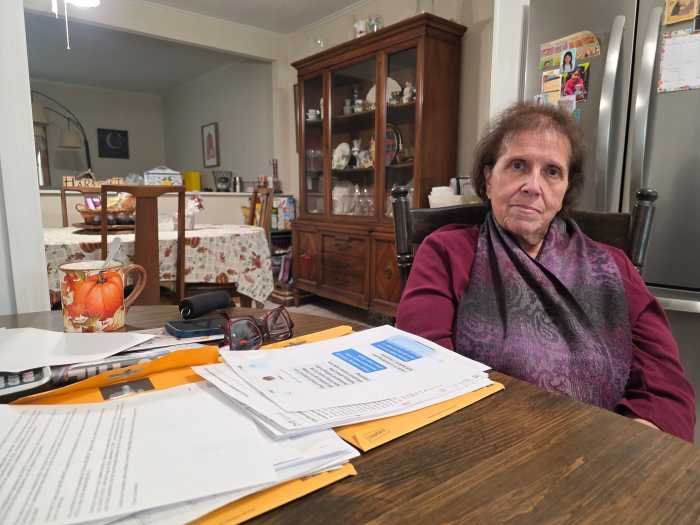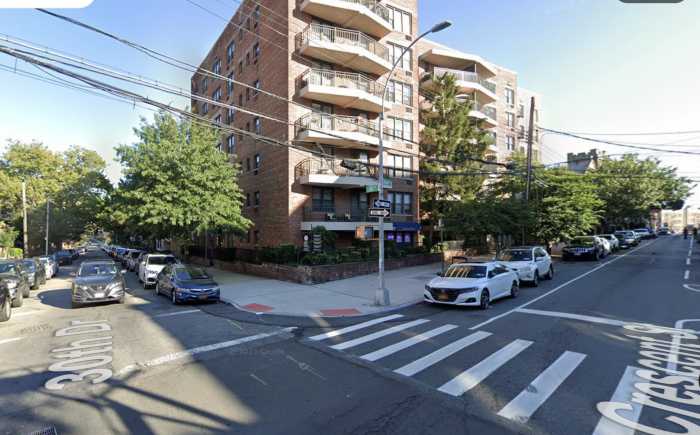Bloomberg officials endorse proposed legislation at City Council hearing
Good will was in surprisingly ample supply in City Council chambers on February 18 as Bloomberg administration officials told councilmembers they agreed with all three pieces of proposed AIDS housing legislation, which many advocates had expected the agency to fight.
Councilman Bill de Blasio, the chairman of the General Welfare Committee, joked that the session had become “a love fest” between the Council and officials from the Human Resources Administration, the agency responsible for housing homeless people with HIV and AIDS. HRA Commissioner Verna Eggelston testified that her agency, which oversees the HIV/AIDS Services Administration (HASA), approves of the legislation, and has been working quietly for several months to preemptively make some of the proposed changes.
“We are happy to see that the bills, as a whole, focus on the achievement of service outcomes for HASA clients, rather than on the process HASA uses to do its work,” said Eggelston.
After the meeting, an HRA spokesman said the agency will work with the Council on the specific wording of the bills.
Introduced in late January by de Blasio and fellow Councilmembers Christine Quinn and Eric Gioia, the legislation would
improve the city’s system for housing homeless AIDS patients by creating a central database to track clients’ housing applications, force HASA to make quarterly reports on caseloads and guarantee that every client who walks in gets a permanent housing application. The package also requires city caseworkers to show each AIDS patient three permanent apartments within 90 days to make sure they have the chance to get affordable housing.
Eggelston and her staff told the Council that the agency has already gone a long way toward fixing the problems that spurred this legislation.
“Most of the changes the Council is proposing are very consistent with the kinds of changes we’re making,” David Hansell, Eggleston’s chief of staff, said later. “We expect very shortly we’ll sit down with them and discuss the details.”
Many clients who live in emergency housing claim to have filled out numerous applications for permanent housing that get lost in the shuffle. Among the new programs HASA has developed is a tracking system that will reduce lost paperwork and confusion about the status of a client’s housing application. The database has been compared to COMPSTAT, the computerized statistics system that has revolutionized the New York City Police Department’s crime reporting methods and given the community easy access to crime data.
HRA officials also said they are developing an online housing application and a system that would let caseworkers communicate directly with housing providers. They expect to begin testing the system in about three months and hopes to have it operational by the end of the year.
Many of the AIDS housing advocates were floored by the commissioner’s positive testimony.
“This is crazy,” muttered Jennifer Flynn, the executive director of the New York City AIDS Housing Network, an advocacy group. If the legislation passes, Flynn has said, New York will be the first city in the country to have a law that defines housing as a human right.
Armen Merjian, a senior staff attorney at Housing Works, an AIDS housing group, called the legislation “a no-brainer.” He said after the meeting that he was pleasantly surprised at HRA’s agreement.
“Advocates are used to HRA coming and fighting tooth and nail against any measures that would benefit and protect HASA clients and the AIDS community,” he said. But this time, “they seemed to say that, other than tinkering with a word or two, there weren’t going to be any substantive objections [to the bills]. We will be surprised and dismayed if, between now and the vote, we find they are trying to eviscerate them.”
A spokesman for Councilman Gioia said he hopes the committee will vote to pass the legislation sometime in the spring.
gaycitynews.com




































